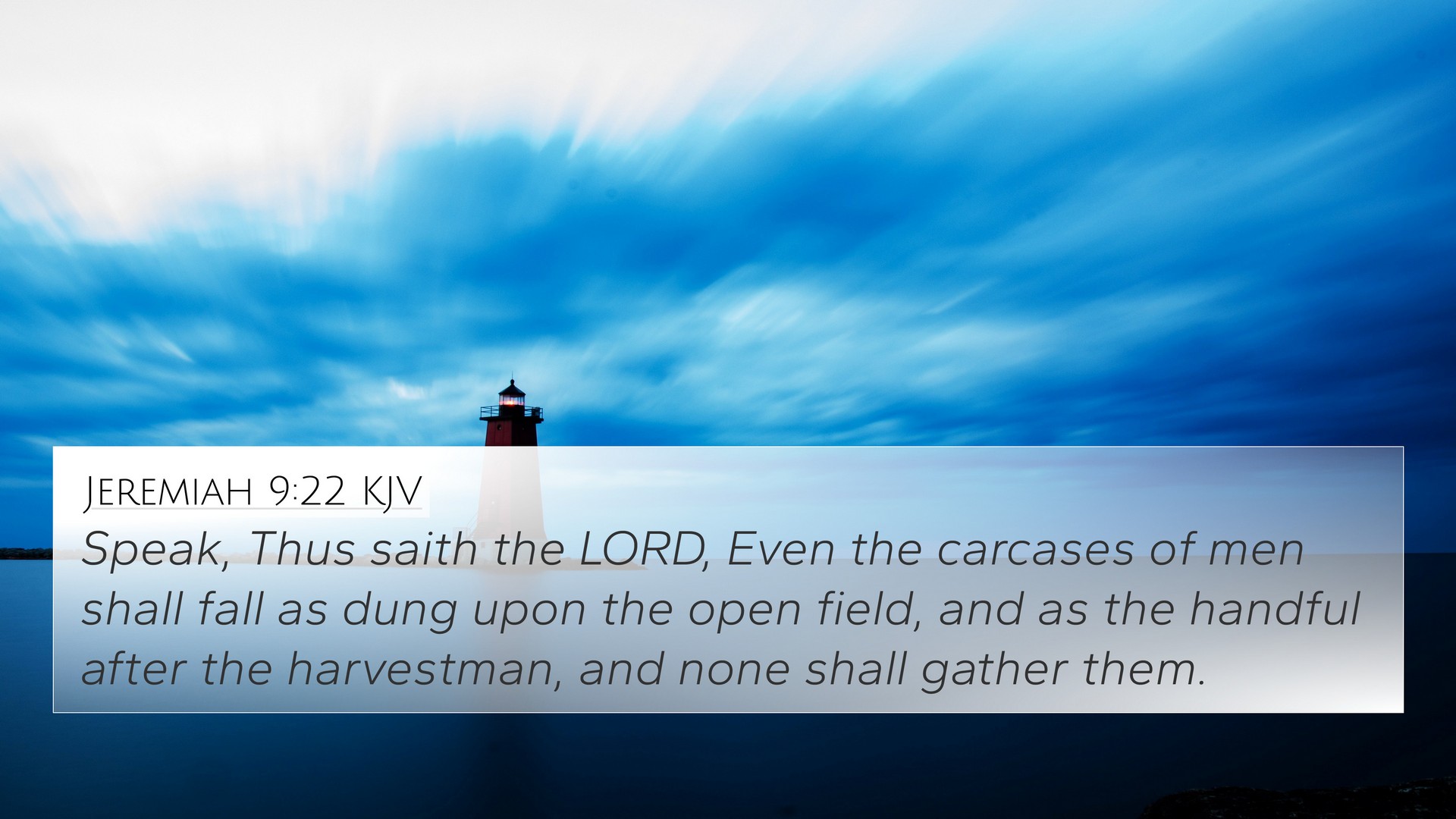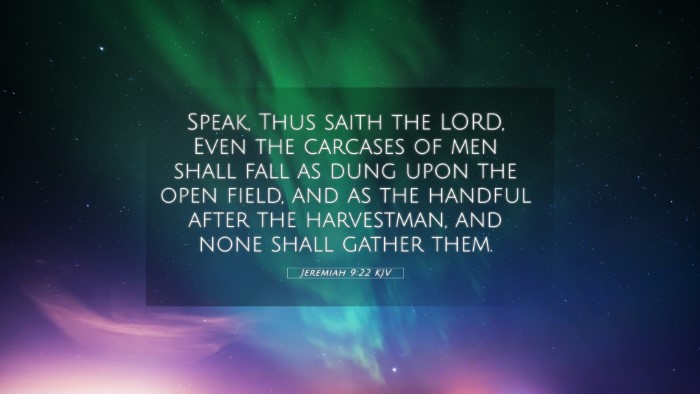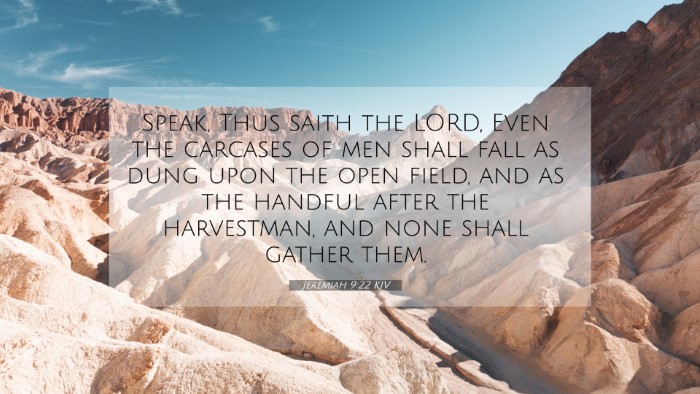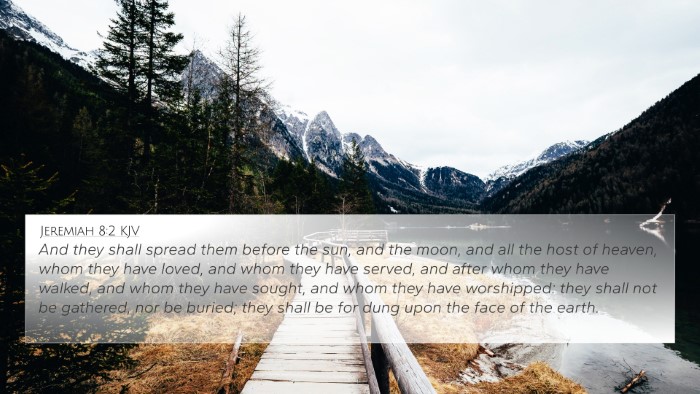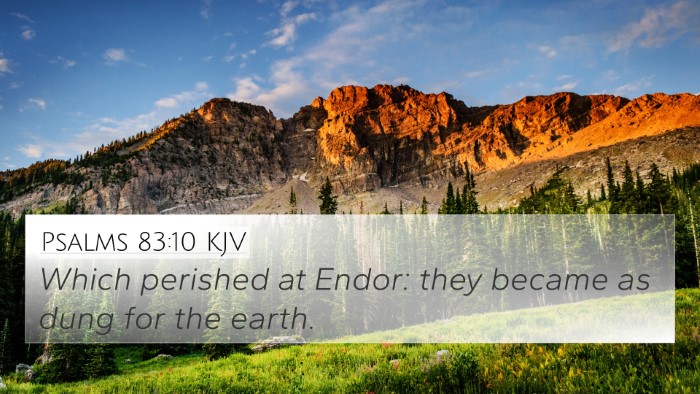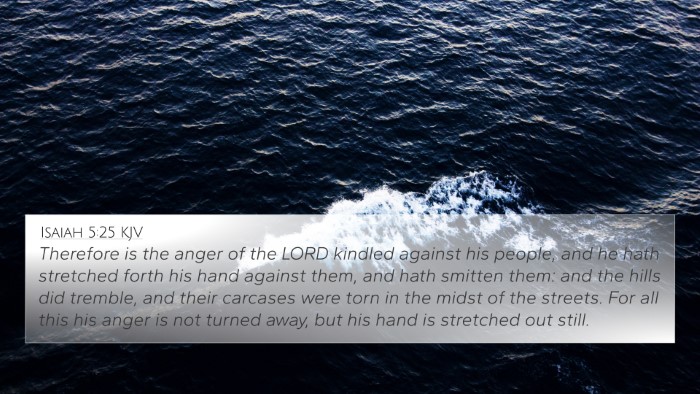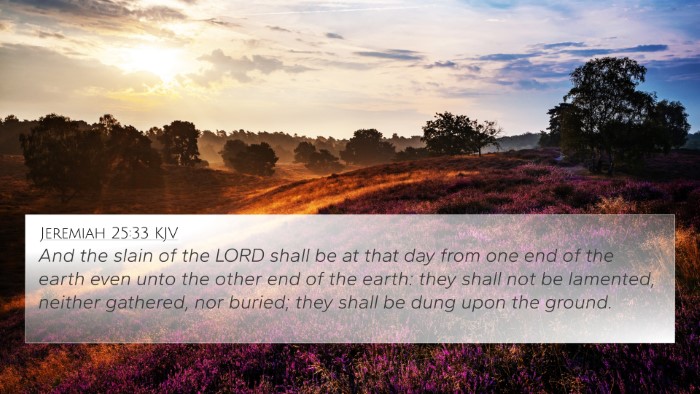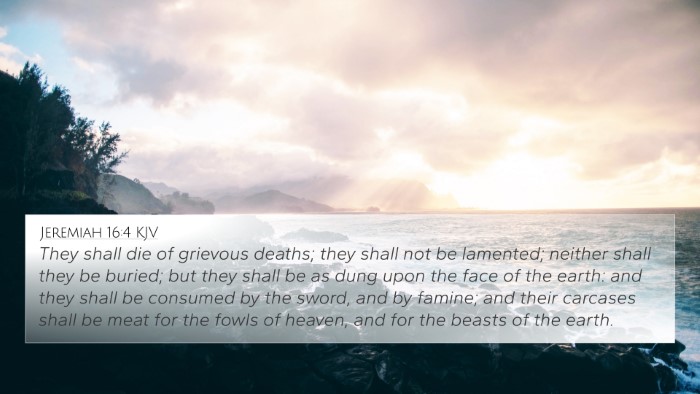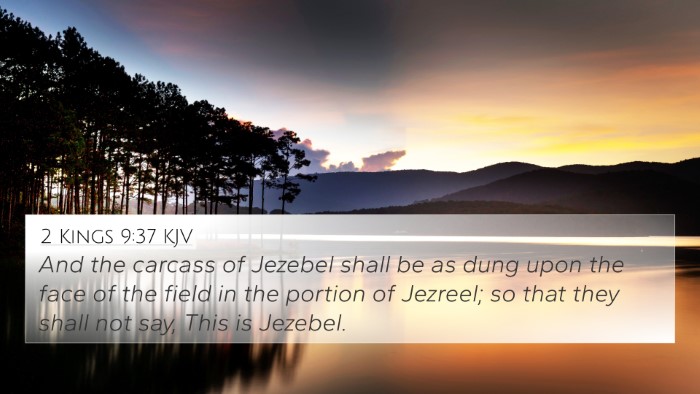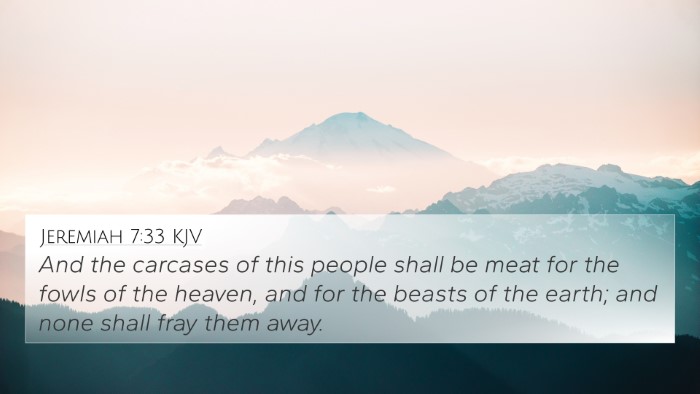Understanding Jeremiah 9:22
Jeremiah 9:22 is a poignant verse that encapsulates the sorrow and grief of the prophet Jeremiah as he contemplates the fate of his people and the consequences of their actions. The verse states:
"Let not the wise man glory in his wisdom, neither let the mighty man glory in his might, let not the rich man glory in his riches."
Meaning and Context
This verse contrasts the values of wisdom, strength, and wealth with what should be the true source of glory. As per the public domain commentaries, several key themes emerge:
-
Humility over Pride: Jeremiah emphasizes the importance of humility and the futility of boasting in human achievements. Matthew Henry notes that such boasting leads to spiritual blindness and a disconnection from God.
-
True Strength and Wisdom: Albert Barnes points out that the true measure of wisdom and strength is not in earthly status but in understanding and knowing God. Thus, the glory of man pales in comparison to the glory of knowing the Creator.
-
The Temporal Nature of Riches: Adam Clarke remarks on the fleeting nature of material wealth. He encourages readers to seek eternal riches that come from a relationship with God rather than temporary earthly treasures.
Cross-References for Enhanced Understanding
To broaden our understanding of Jeremiah 9:22, we can examine several related Bible verses:
- 1 Corinthians 1:26-29: This passage emphasizes that God chooses the foolish and the weak to confound the wise and strong, reinforcing the message of humility.
- Proverbs 11:28: "He who trusts in his riches will fall, but the righteous will flourish like foliage," echoing the transient nature of wealth.
- James 4:16-17: This scripture warns against boasting about tomorrow, underlining human inability and the need for dependence on God.
- Matthew 6:19-21: Jesus teaches that treasures on earth are temporary, but treasures in heaven are eternal, supporting the call to seek God's glory.
- Isaiah 40:6-8: This passage highlights the frailty of humanity, stating that "all flesh is grass," further emphasizing the temporary nature of earthly glory.
- Jeremiah 9:23-24: The following verses directly expand on this theme, asserting that the wise, mighty, and rich should glory in knowing the Lord.
- Galatians 6:3: This verse teaches that if anyone thinks himself to be something, when he is nothing, he deceives himself, reiterating the need for humility.
- Psalms 49:16-17: This psalm reiterates the idea that wealth can’t accompany a person in death, showcasing the priority of spiritual riches over material ones.
Themes and Applications
When examining the themes of Jeremiah 9:22, we recognize several practical applications:
-
Re-evaluating Values: Believers are encouraged to assess what they prioritize in life. Are they seeking accolades of wisdom, wealth, or power, or are they pursuing God’s kingdom and righteousness?
-
Seeking True Knowledge: The verse urges a deeper search for the knowledge of the Lord. In theological studies, understanding biblical truths should take precedence over worldly wisdom.
-
Cultivating Humility: The call to humility is a pivotal aspect of Christian walk. Recognizing limitations helps cultivate dependence on God's grace.
Connections Between Bible Verses
Jeremiah 9:22 serves as a cornerstone for connecting various biblical texts. By utilizing tools for Bible cross-referencing, one can see how this verse dialogues with both the Old and New Testaments:
- Comparative Bible Verse Analysis: Comparing Jeremiah's warnings with Jesus' teachings in the Gospels can yield rich insights into the continuity of God's message.
- Identifying Connections: Linking this verse to New Testament scriptures helps in understanding the full scope of what it means to boast in the Lord rather than in oneself.
- Inter-Biblical Dialogue: The themes of pride versus humility and temporal versus eternal wealth resonate through the letters of Paul and the wisdom literature of the Old Testament.
Conclusion
In summary, Jeremiah 9:22 speaks to the heart of human pride and the importance of knowing God above all else. The cross-references provided serve not only as a guide to understanding this verse in its immediate context but also show the thematic continuity present throughout the scriptures. Through a comprehensive Bible cross-reference study, we can unearth deeper meanings and applications relevant to our spiritual journey.
